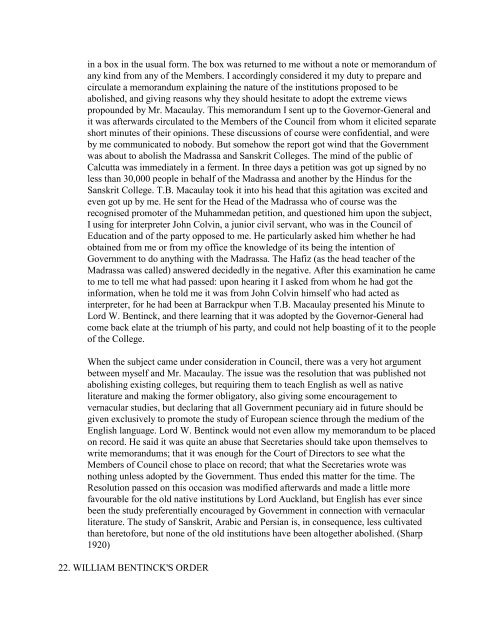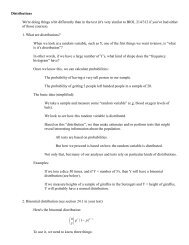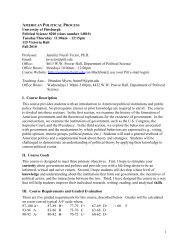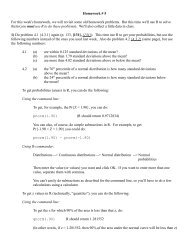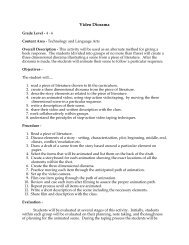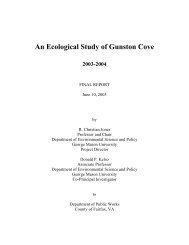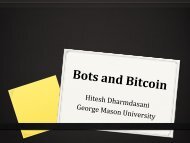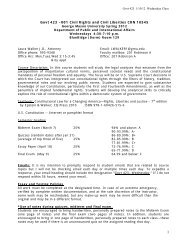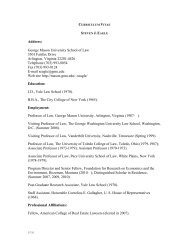M.S. Thirumalai, Ph.D. “Lord Macaulay: The Man Who Started It All ...
M.S. Thirumalai, Ph.D. “Lord Macaulay: The Man Who Started It All ...
M.S. Thirumalai, Ph.D. “Lord Macaulay: The Man Who Started It All ...
You also want an ePaper? Increase the reach of your titles
YUMPU automatically turns print PDFs into web optimized ePapers that Google loves.
in a box in the usual form. <strong>The</strong> box was returned to me without a note or memorandum of<br />
any kind from any of the Members. I accordingly considered it my duty to prepare and<br />
circulate a memorandum explaining the nature of the institutions proposed to be<br />
abolished, and giving reasons why they should hesitate to adopt the extreme views<br />
propounded by Mr. <strong>Macaulay</strong>. This memorandum I sent up to the Governor-General and<br />
it was afterwards circulated to the Members of the Council from whom it elicited separate<br />
short minutes of their opinions. <strong>The</strong>se discussions of course were confidential, and were<br />
by me communicated to nobody. But somehow the report got wind that the Government<br />
was about to abolish the Madrassa and Sanskrit Colleges. <strong>The</strong> mind of the public of<br />
Calcutta was immediately in a ferment. In three days a petition was got up signed by no<br />
less than 30,000 people in behalf of the Madrassa and another by the Hindus for the<br />
Sanskrit College. T.B. <strong>Macaulay</strong> took it into his head that this agitation was excited and<br />
even got up by me. He sent for the Head of the Madrassa who of course was the<br />
recognised promoter of the Muhammedan petition, and questioned him upon the subject,<br />
I using for interpreter John Colvin, a junior civil servant, who was in the Council of<br />
Education and of the party opposed to me. He particularly asked him whether he had<br />
obtained from me or from my office the knowledge of its being the intention of<br />
Government to do anything with the Madrassa. <strong>The</strong> Hafiz (as the head teacher of the<br />
Madrassa was called) answered decidedly in the negative. After this examination he came<br />
to me to tell me what had passed: upon hearing it I asked from whom he had got the<br />
information, when he told me it was from John Colvin himself who had acted as<br />
interpreter, for he had been at Barrackpur when T.B. <strong>Macaulay</strong> presented his Minute to<br />
Lord W. Bentinck, and there learning that it was adopted by the Governor-General had<br />
come back elate at the triumph of his party, and could not help boasting of it to the people<br />
of the College.<br />
When the subject came under consideration in Council, there was a very hot argument<br />
between myself and Mr. <strong>Macaulay</strong>. <strong>The</strong> issue was the resolution that was published not<br />
abolishing existing colleges, but requiring them to teach English as well as native<br />
literature and making the former obligatory, also giving some encouragement to<br />
vernacular studies, but declaring that all Government pecuniary aid in future should be<br />
given exclusively to promote the study of European science through the medium of the<br />
English language. Lord W. Bentinck would not even allow my memorandum to be placed<br />
on record. He said it was quite an abuse that Secretaries should take upon themselves to<br />
write memorandums; that it was enough for the Court of Directors to see what the<br />
Members of Council chose to place on record; that what the Secretaries wrote was<br />
nothing unless adopted by the Government. Thus ended this matter for the time. <strong>The</strong><br />
Resolution passed on this occasion was modified afterwards and made a little more<br />
favourable for the old native institutions by Lord Auckland, but English has ever since<br />
been the study preferentially encouraged by Government in connection with vernacular<br />
literature. <strong>The</strong> study of Sanskrit, Arabic and Persian is, in consequence, less cultivated<br />
than heretofore, but none of the old institutions have been altogether abolished. (Sharp<br />
1920)<br />
22. WILLIAM BENTINCK'S ORDER


